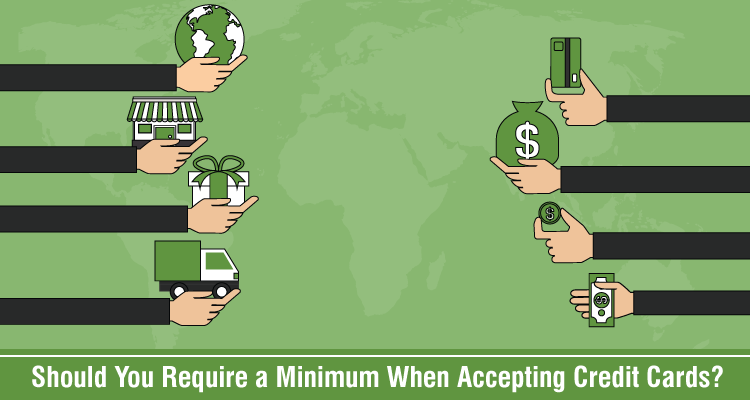One of the most common questions that merchants ask when selecting a credit card processor is if they’re allowed to require a minimum purchase on credit card payments.
First and foremost, under the Durbin Amendment, businesses are allowed to impose a purchase minimum of up to $10. The law reads: “A payment card network shall not, directly or through any agent, processor, or licensed member of the network, by contract, requirement, condition, penalty, or otherwise, inhibit the ability of any person to set a minimum or maximum dollar value for the acceptance by that person of any form of payment.”
Businesses are also allowed to add surcharges, or checkout fees, to help cover the processing fees that it costs them every time a customer uses plastic. Banning this is getting more common in some states. These states include; Colorado, Connecticut, Florida, Kansas, Maine, Massachusetts, New York, Oklahoma and Texas.
Interestingly, this doesn’t apply to debit cards — even if the customer selects “credit” during a transaction. It’s not illegal to require debit card customers to spend a minimum amount. However, it actually does violate user agreements with a majority credit card-processing companies.
Even though merchant agreements vary, small-businesses pay less to process debit cards than credit cards. In fact, under Dodd-Frank, debit card fees are capped at 21-cents per transaction.

Why credit card minimums benefit merchants.
Every time that you process a credit card payment, you have to pay a fee. At the very least, there will be an interchange fee for each swipe. In most cases, this will be 2 percent or more. Some card issuers may also charge merchants a minimum charge per swipe.
This may not be a problem for larger enterprise-level companies. However, for the local mom and pop shop that relies on smaller purchases, this is a big deal. Let’s say you purchased an item at wholesale for $2.50 and you sell at $5. A 40 cent swipe fee may hit you though, meaning that you’re only making a profit of $2.10.
Unfortunately, transaction fees may just be the beginning. CardFellow has a detailed list of the fees that merchants may be responsible for, but they could include everything from situational fees, such as chargebacks or international fees, processing fees, and fixed fees like monthly fees.
Prior to the Durbin Amendment, this meant that a business owner would have a tough decision to make.
On one hand, credit cards offer advantages like capturing more customers and potentially increasing your revenue. On the other hand, the expenses involved with processing credit cards may not have been cost-effective.

Should you require a minimum on credit card purchases?
While it’s perfectly legal to set a credit card minimum, it may not be the best option for all businesses. According to Doug Hendrick, owner of Steamer’s Cafe in Clinton, S.C., when there’s an average bill of $4 to $8, banning credit cards for tabs under $10 “would not be convenient for my customers.” In that case, customers may decide to go to a competitor who doesn’t require a minimum purchase for credit card purchases.
However, as Carol Schroeder, co-owner of Orange Tree Imports in Madison, Wisconsin, says more and more people, “especially younger people, are going cashless and use credit for everything.” Schroeder adds, “And we don’t want to lose those transactions.”
In short, unless you’re a small business owner, a minimum requirement for credit card purchases may not make sense.
Overall, most customers don’t have a problem with spending$10 because of the convenience of the credit card purchases.













